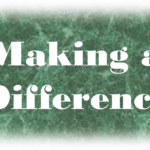Preserving our Panet- In a world facing unprecedented environmental challenges, the need for conservation has never
been more urgent. From protecting endangered species to preserving natural
habitats, conservation efforts play a vital role in safeguarding the
biodiversity and ecological balance of our planet. In this blog post, we’ll
explore the importance of conservation and share practical ways individuals can
support these critical efforts.
Understanding Conservation
Conservation is the
practice of protecting and preserving natural resources, ecosystems, and
wildlife for present and future generations. It involves a range of activities,
including habitat restoration, wildlife management, and sustainable resource
management. By conserving biodiversity and maintaining healthy ecosystems,
conservation efforts help ensure the survival of countless species and maintain
the services that nature provides, such as clean air, fresh water, and fertile
soil.
Ways to Support Conservation Efforts
1. Educate Yourself: Take the time to
learn about local and global conservation issues, including threats to
biodiversity, endangered species, and conservation initiatives in your area.
Knowledge is a powerful tool for raising awareness and inspiring action.
2. Support Conservation Organizations: Consider donating
to reputable conservation organizations that work to protect wildlife,
habitats, and natural resources. Look for organizations with transparent
funding mechanisms and a track record of effective conservation work.
3. Volunteer Your Time: Get involved in
conservation efforts by volunteering with local conservation groups, wildlife
rehabilitation centers, or environmental organizations. Whether it’s
participating in habitat restoration projects, monitoring wildlife populations,
or educating the public about conservation issues, your time and expertise can
make a meaningful difference.
4. Reduce Your Environmental Footprint: Adopt eco-friendly
habits and practices in your daily life to reduce your impact on the
environment. Conserve water, minimize energy consumption, reduce waste, and
choose sustainable products and transportation options whenever possible.
5. Advocate for Conservation Policies: Advocate for
policies and legislation that support conservation efforts at the local,
national, and international levels. Write to elected officials, participate in
public hearings and forums, and support candidates who prioritize environmental
conservation and sustainability.
6. Engage Your Community: Mobilize your
friends, family, and community members to take action on conservation issues.
Organize educational events, community cleanups, or fundraising campaigns to
raise awareness and support for conservation initiatives in your area.
Conclusion: Taking Action for
Conservation
Conservation is a
collective responsibility that requires the active participation and engagement
of individuals, communities, governments, and organizations around the world.
By supporting conservation efforts, we can protect the incredible diversity of
life on Earth and ensure a sustainable future for all living beings. Let’s
commit to taking action, supporting conservation initiatives, and preserving
the natural beauty and biodiversity of our planet for generations to come.
Share via:










